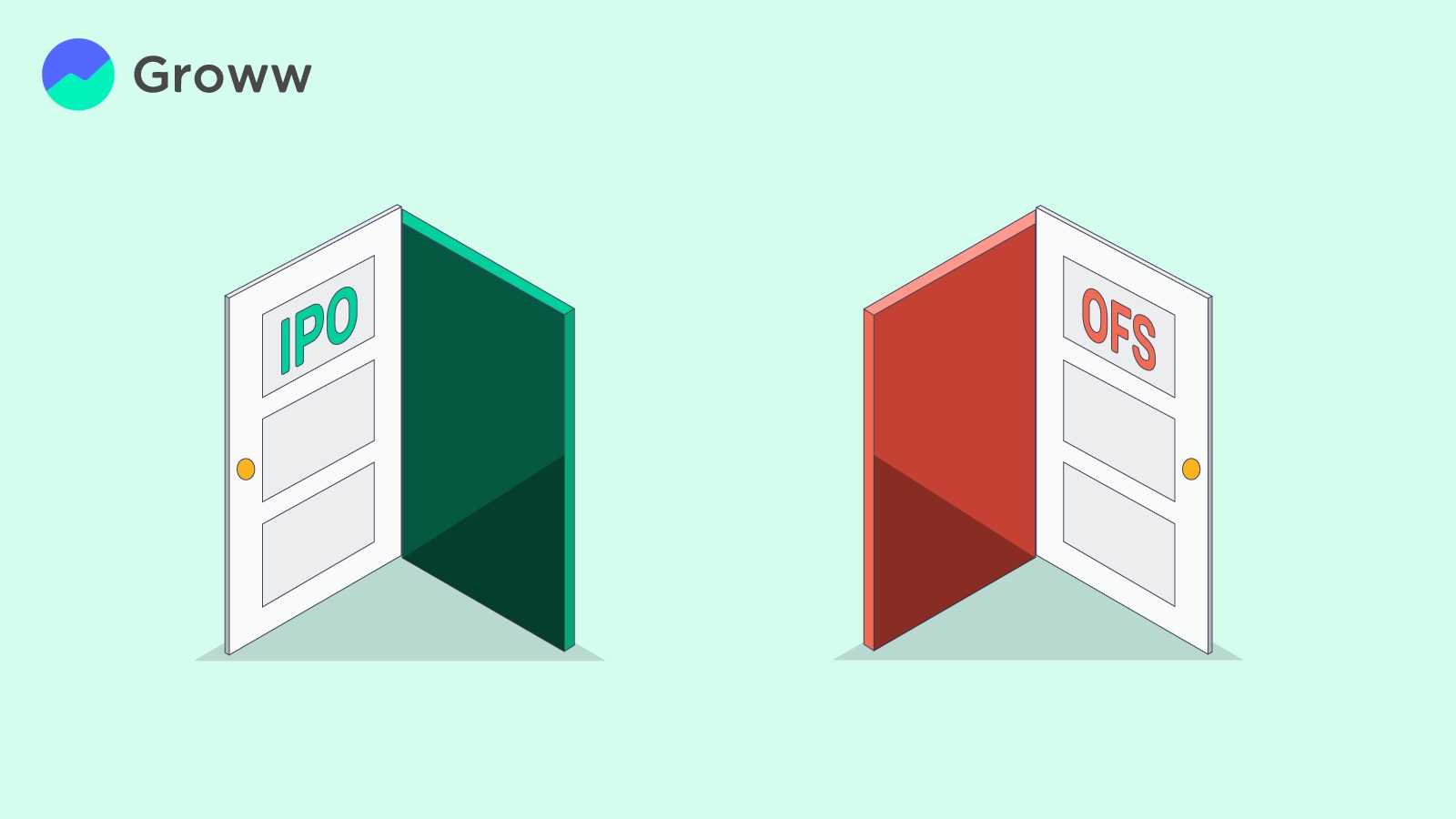Difference Between IPO and OFS

Initial Public Offering (IPO) and Offer for Sale (OFS) are two common methods companies use to raise capital. Although both involve selling a portion of the company's stake to the public, IPOs and OFS differ in their features and purposes.
In this blog, we will look at OFS vs IPO – their differences – while highlighting their chief features.
Understanding IPO
IPO is a method of raising capital from the public through which a private company turns public and gets listed on the stock exchanges. The primary objective of an IPO is to raise capital by issuing equity shares to the public.
Companies can opt for a fresh issue in the primary market for several purposes, including meeting working capital requirements, funding expansion plans, repayment of debt, etc. This transition from a private to a public company involves several steps, including obtaining strict regulatory approvals and compliance with stock exchange rules.
Understanding OFS
OFS is an approach that allows an exit route for promoters or initial stakeholders of the company. This method enables existing shareholders of the company to sell their stakes in the primary market and book profit. It does not involve any fresh issue of share capital; only the ownership of the shares gets transferred from one person to another.
However, some companies mix their fresh issue and offer for sale through a single IPO to provide an exit route for the promoters or non-public stakeholders.
OFS vs IPO: Key Differences
Here is the comparison of the two – fresh issue vs offer for sale – based on several factors presented in a tabular format:
|
Point of Difference |
OFS |
IPO |
|
Purpose |
Provide an exit route to existing stakeholders of the company |
Raise capital through a fresh issue of shares to the public |
|
Risk |
Low risk |
High risk |
|
Cost |
Minimal |
Comparatively more costly |
|
Time |
Usually 1 trading day |
Typically, it takes 3 to 10 trading days |
|
Paperwork |
No need to fill out Red Herring Prospectus (RHP) or any other extensive paperwork |
Need to file Red Herring Prospectus with the regulatory authorities and involve extensive paperwork |
|
Bid Modifications |
Investors can adjust their bids but cannot cancel them |
Once submitted, bids cannot be changed or cancelled |
The Bottomline
To sum up, an IPO is the process through which a private company goes public by issuing new shares to the public. On the other hand, OFS is an approach through which existing stakeholders of the company dilute their stakes and offer them for sale to the public.
Whether you are investing in an IPO or an OFS, understanding the difference between IPO vs OFS can help you navigate various complexities and make more informed decisions.
|
You may also be interested to know |
|
|
1. |
Demat Account vs Statement of Accounts |
|
2. |
What is CPR in Trading |
|
3. |
What is Dabba Trading |
|
4. |
What is Gap Up and Gap Down in Stock Market Trading |
|
5. |
What is CUSIP Number |